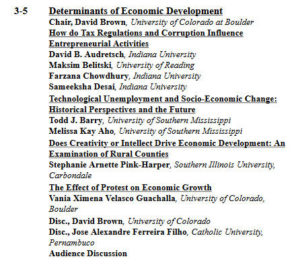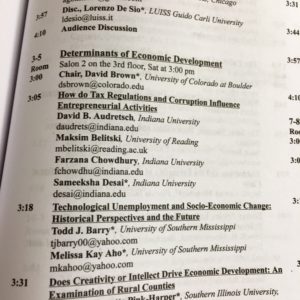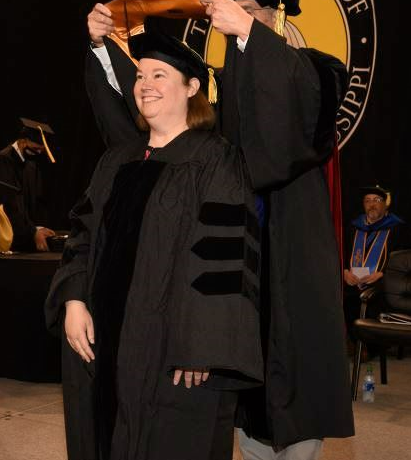I co-presented a paper with my friend and fellow PhD student Todd Barry at the 74th annual Midwest Political Science Association Conference (MPSA) conference (held April 7-10, 2016) at the Palmer House Hilton in Chicago today.
But in the morning, before the presentation, we went to The Art Institute of Chicago to see “Van Gogh’s Bedrooms” exhibit. I also wanted to see A Sunday on La Grande Jatte by Georges Seurat, as its one of my favorite paintings. The van Gogh exhibit was wonderful and filled with many beautiful paintings by van Gogh, as well as work by a few others. We toured around the museum for almost two hours. This is such an amazing museum and really you could spend hours here.
- Book owned by van Gogh
- Utagawa Hiroshige, 1857, Maple Trees at Mama, Tekona Shrine and Tsugi Bridge
- Parisian Novels, 1887
- Letters to Theo, 1888
- Madame Roulin Rocking the Cradle, 1889
- Van Gogh’s Chair, 1888
- Self-Portrait, 1889
- The Bedroom, Sept 1889
- The Bedroom, Oct 1888
- The Bedroom, Sept 1889
- Palette of van Gogh, 1890
- Hospital at Saint-Remy, 1889
- Corridor in the Asylum, 1889
- Self-Portrait, 1887
- Mary Cassatt, 1893, The Child’s Bath
- John Singer Sargent, 1897, Mrs. George Swinton
- Buddha, Java, 9th century
- Ganesha 9/10th century
- Buddha, Chola dynasty, India, 12th century
- Shiva, Chola, c1000. India
- Rembrandt, 1648, Self-Portrait Etching at a Window
- Ismael, Persian Ambassador, 1569, Melchior Lorck
- Rodan, 1881, Adam
- Degas, 1879-81, Little Dancer Age Fourteen
- Caillebotte, 1877, Paris Street, Rainy Day
- Renoir, 1881, Two Sisters
- Seurat, 1884, A Sunday on La Grande Jatte
- Oil Sketch for La Grande Jatte, 1884
- Monet, 1885, Boats on the Beach at Etretat
- Monet, 1900-01, Houses of Parliament
- Monet, 1890/91, Stacks of Wheat
- Monet, 1917/19, Water Lily Pond
- Gauguin, 1893, The Ancestors of Tehamana
- Cezanne, 1890, The Vase of Tulips
- Blanche, 1890, The Traveler
- Lion-Headed Demon, Indonesia, 9th century
- O’Keeffe, 1965, Sky Above Clouds IV
- Hopper, 1942, Nighthawks
- Wood, 1930, American Gothic
- O’Keeffe, 1928, Yellow Hickory Leaves with Daisy
- O’Keeffe, 1931, Cow’s Skull with Calico Roses
- Marin, 1947, Movement, Boats and Objects, Blue Gray Sea
- Chicago Stock Exchange
- America Windows, Chagall, 1977
- Bell Krater, Greek, Athens, c450 bc
- Remington, 1895, The Bronco Buster
- Timurid Dynasty, 15th century
- Bowl, 10th century, Eastern Iran
- Lobed Bowl, 12th/13th century, Iran
- Lion Incense Burner, 11th/12th century, Iran/Afghanistan
- Large Luster Bowl, 1191, Iran
- Lamp, 14th century, Mamluk Dynasty
- Poetry, 1527, Afghanistan
- Wedding Night, 1560/1570, Safavid Dynasty
- Planispheric Astrolabe, 18th century, Iran
- Cycladic figure, from Keros, Early Bronze Age, 2600/2400 bc
Then for lunch we went to the Russian Tea Time. I had something called Blinchiki with Beef, which was really good. Todd had Borscht and something with duck.
The presentation went well, but only two papers were presented, ours and another scholars. The other two groups did not show up. There was a chair and one discussant, and we had seven people in the audience, which is not bad for a Saturday afternoon talk. After the presentation I visited the vendors room and bought a few lovely books (which were discounted 50 – 75% off!)
Saturday, April 9 3:00 pm
Section: 3-5 Determinants of Economic Development
Technological Unemployment and Socio-Economic Change: Historical Perspectives and the Future
“Since Classical economics, scholars have proposed whether technology displaces workers. Popular culture and scientists have weighed in. This paper applies theory and past misconceptions to how technology may affect socio-economic development ahead.”
Todd J. Barry, University of Southern Mississippi
Melissa Kay Aho, University of Southern Mississippi
Abstract:
Since the time of the Classical economists, such as Malthus, Ricardo, then to Marx and Keynes, dozens of scholars have made predictions using economic theory about the future, and whether technology will someday displace all workers, often called “technological unemployment.” The theory that is generally held is that “marginal productivity” essentially determines hiring and wages. Along with this, popular science fiction since the advent of the Space Age has created folklore over what robots and super computers might bring. As developed countries advance, we already see large changes in income inequality which may be due to the newest technological changes, leaving vast amounts of workers unskilled, and an elite class of experts in computer technologies. Some current leading minds, from Hawking, to Gates, to Musk, have weighed in on this reemerging subject, with dire warnings. How accurate are their concerns? Although predictions about the future are usually wrong, this paper uses economic theory, as well as past misconceptions about the future, and events that are transpiring today to conjecture about the many ways technology in general may affect socio-economic life in developed and developing countries in the coming years.















































































